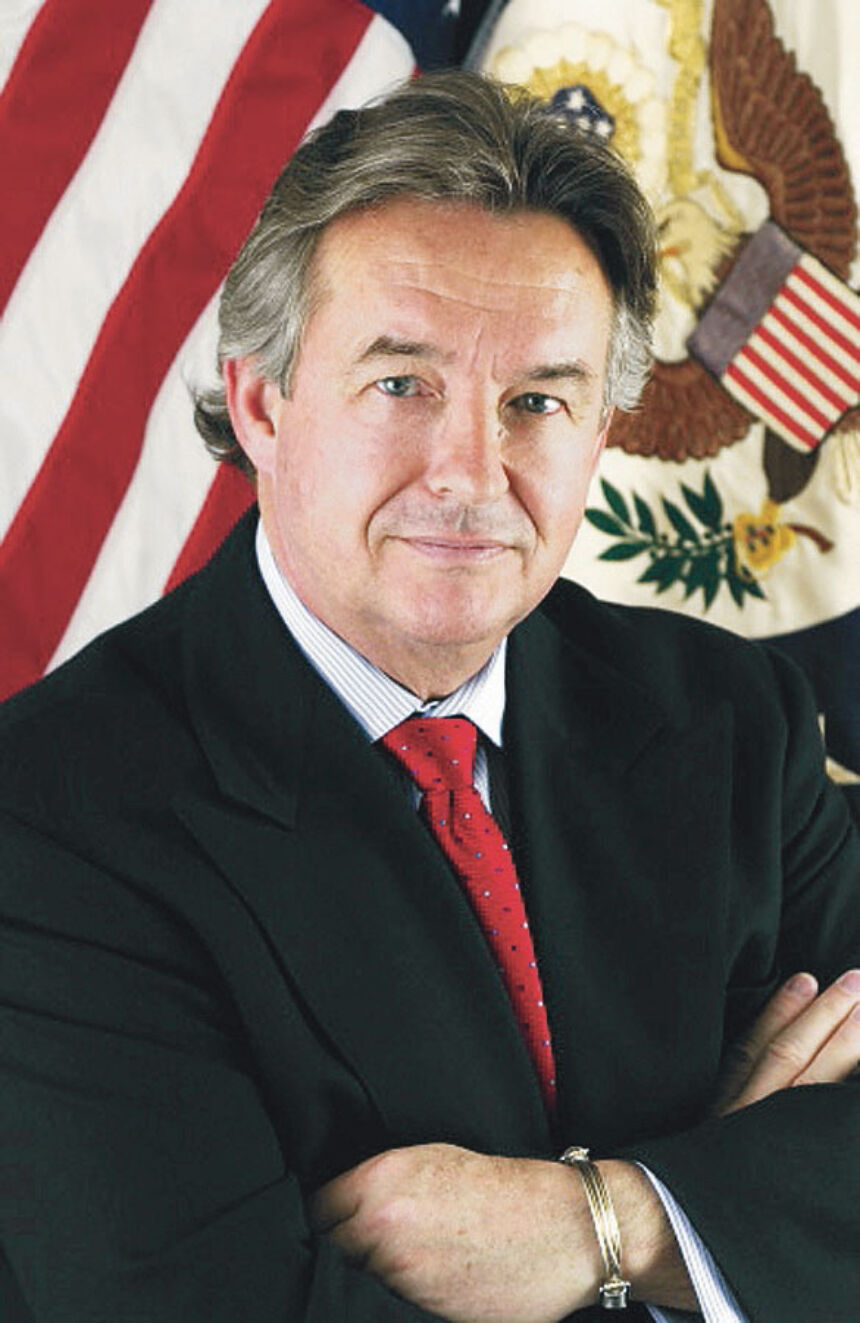February 26, 2015
Former Ambassador Joseph Wilson surprises SIA class

Penn State School of International Affairs students in Professor Dennis Jett’s Intelligence in International Relations (INTAF 812) course got a surprise during Monday’s class when Jett called his friend retired U.S. Ambassador Joseph Wilson to answer the students’ questions about intelligence after they viewed the film Fair Game. The movie is based on Wilson's book The Politics of Truth and Wilson’s wife, Valerie Plame Wilson's memoir, Fair Game: My Life as a Spy, My Betrayal by the White House .
Jett showed the movie in class, then assigned students to write a summary of the film and questions to hypothetically ask Wilson. Students discussed the movie and brought their questions to class, then were surprised when Jett picked up the phone and called Wilson at home to answer the students’ questions.
“He’s an old friend of mine, as we were contemporaries in the foreign service in Africa,” Jett said. “I didn’t tell the students, but I set up the call with him in advance.”
“Professor Jett went around the room, asking each person the question they had about this issue,” said SIA student Daniel Avedesian. “When it was my turn to read my question, Professor Jett replied, ‘I don’t know the answer to that, why don’t we find out,’ and started dialing the phone.”
Wilson spent about 45 minutes on speakerphone with students, answering questions, including whether he would have proceeded with his famous New York Times op-ed if he knew what the fallout would be.
“It was so surprising, especially because it was off-the-cuff and nonchalant,” said SIA student Natalie Cake. “He just dialed the phone, Joe Wilson said ‘hello,’ and I was able to ask questions about issues that were contested in the media and about events that shaped the Iraq war.”
Following President George W. Bush’s 2003 State of the Union Address, in which the president claimed that Iraq was seeking uranium in Africa, Wilson accused the White House of manipulating intelligence to “exaggerate the Iraqi threat.” The op-ed piece, entitled “What I Didn’t Find in Africa,” described Wilson’s 2002 trip to Niger to investigate these claims where he determined “that it was highly doubtful that any such transaction had ever taken place.”
The week after the New York Times piece ran, conservative writer Robert Novak exposed Plame's status as a CIA operative in his Washington Post column. Former Deputy Secretary of State Richard Armitage later admitted that he was the one who leaked Plame’s identity to Novak, but claimed it was inadvertent. Critics allege the leak was an attempt to discredit Wilson's allegations against the Bush administration.
“Talking to someone like Joe Wilson, someone in the middle of policy and politics, normally would seem so inaccessible,” said SIA student Annjulie Vester. “I don’t know anyone with any ties to politicians or notable people, and it was impressive talking to him, and knowing Professor Jett has these types of contacts from his time in the State Department.”
In addition to their service together in Africa, Jett and Wilson held the same position on the National Security Council and spent nine months traveling the country teaching a seminar for other foreign-service members. Plame is a Penn State alumna and serves on SIA’s advisory board.
Jett’s course examines how intelligence is gathered, and how it is used in the process of formulating foreign policy. Students consider the various types of intelligence that are gathered, what government agencies are involved, how the intelligence is analyzed, and what impact this information has on policymakers.
